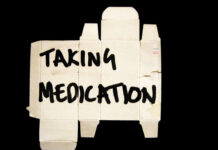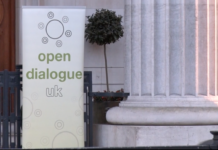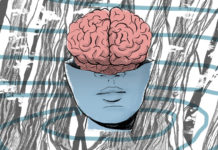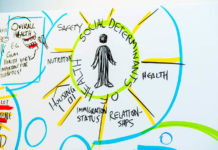The Role of Context, Language, and Meaning in Hearing Voices
Sociocultural context, language, and sense-making process are among concepts that can help hearers and providers better understand the phenomenon of hearing voices
Danish Study Finds Better 10-year Outcomes in Patients Off Antipsychotics
Study finds that 74% of patients with a psychotic disorder off antipsychotics at end of 10 years are in remission.
Opening A Dialogue In Mental Health
I have sometimes stopped en route to work, unsure how much longer I can continue. There is a sense of betrayal to my father and grandmother by working in a profession that failed them and is the only medical specialty to have its own survivor movement, not from the illnesses it hopes to treat, but from the ministrations of the profession itself.
Love is Dialogical: The Open Dialogue UK International Conference and Training
In the past five years, there has been a dramatic explosion of interest in the Open Dialogue Therapy practiced in Tornio, Finland. It is a humanistic “treatment” that has produced five-year outcomes for psychotic patients that are, by far, the best in the developed world, and there are now groups in the United States, Europe and beyond that are seeking to “import” this care. However, the challenges for doing so are many and, last month, Open Dialogue UK - on the occasion of the first-ever fully recognized Open Dialogue training outside of Tornio - organized a conference in London to hold an open dialogue about Open Dialogue.
How Feedback Can Improve Psychotherapy Treatment
Researcher examines the impact of client feedback and progress assessment on improvement in outcomes.
Madness and the Family, Part III: Practical Methods for Transforming Troubled Family Systems
We are profoundly social beings living not as isolated individuals but as integral members of interdependent social systems—our nuclear family system, and the broader social systems of extended family, peers, our community and the broader society. Therefore, psychosis and other forms of human distress often deemed “mental illness” are best seen not so much as something intrinsically “wrong” or “diseased” within the particular individual who is most exhibiting that distress, but rather as systemic problems that are merely being channeled through this individual.
Integrating Indigenous Healing Practices and Psychotherapy for Global Mental Health
As the Global Mental Health Movement attempts to address cross-cultural mental health disparities, a new article encourages integrating traditional healing practices with psychotherapy.
Why is the Field of Psychotherapy Still Fractured into Different Approaches?
Psychotherapy is dominated by contradicting schools of thought, exhibits a gap between research and practice, and repackages old ideas rather than finding clinical consensus.
Psychology Must Become a Sanctuary Discipline to Heal Racial Trauma
Researchers explore pathways of healing racial trauma in Latinx immigrant communities.
Therapists Collaborate with Clients through Metatherapeutic Communication
Researchers develop an initial framework for understanding metatherapeutic communication practices that may inform future integration of collaboration in psychotherapy.
Psychologists Argue for Decolonial Approach to Global Poverty
Individualist psychological models of poverty pathologize poor communities, decolonial approaches that emphasize context and interdependence may be more sustainable.
Correcting Misconceptions of Trauma-informed Care with Survivor Perspectives
Trauma-informed approaches have the potential to promote recovery but must involve survivors and service-users to prevent the experience of retraumatization within psychiatric and mental health services.
Mindfulness Therapy Can Prevent Depression Relapse, Review Finds
Mindfulness-based cognitive therapy (MBCT) may be more effective at reducing the risk of depressive relapse compared to current standard treatments with antidepressant drugs. A...
A Conversation about Having Conversations about Psychiatry
In spite of constantly increasing opportunities to tell different stories to the canonical story of bio-psychiatry, it can be risky for academics to voice a different perspective than the mainstream model of mental illness. In this conversation, a communication professor and a psychology professor discuss their challenges and personal experiences with going against the grain, such as what it means to be labeled “anti-psychiatry” by colleagues and responding to students upset to learn their medications may not be all they thought they were.
How to Promote Community Inclusion in Mental Health Practice
Practitioners and public leaders identify methods and barriers for integrating those diagnosed with mental health issues into community life.
Landmark Schizophrenia Study Recommends More Therapy
Results of a large government-funded study call into question current drug heavy approaches to treating people diagnosed with schizophrenia. The study, which the New York Times called “by far the most rigorous trial to date conducted in the United States,” found that patients who received smaller doses of antipsychotic drugs with individual talk therapy, family training, and support for employment and education had a greater reduction in symptoms as well as increases in quality of life, and participation in work and school than those receiving the current standard of care.
Research Shows Mindfulness can Decrease Anxiety
A new study explores the impact of a Mindfulness-Based intervention on stress-related biomarkers in individuals diagnosed with Generalized Anxiety Disorder (GAD).
Open Dialogue: Does the Current Research Data Support Further Investment?
A leading US journal published an extensive literature review and analysis of currently available research on Open Dialogue. An accompanying commentary concludes, “The present data on Open Dialogue are insufficient to warrant calls for further research on the program other than those projects that are currently under way.”
Pilot Study Adapts Open Dialogue for US Health Care
In an article for Psychiatric Services, psychiatrist Christopher Gordon and his colleagues report on the results of a one-year feasibility study attempting to implement...
Existential Therapy Assists Patients Withdrawing From Psychiatric Drugs
Confronting existential anxiety through “Basal Exposure Therapy” shows promising results in people withdrawing from psychotropic drugs.
Yoga and Mindfulness Benefit Youth with Autism Spectrum Disorder
A new review finds preliminary evidence for yoga and mindfulness-based interventions for youth diagnosed with Autism Spectrum Disorder (ASD).
Researchers Present Structural Competency Training Model for Psychiatrists
Researchers argue that a structural competency and social determinants of health approach must be made central to psychiatry training.
More to Happiness Than Feeling Good, Study Finds
Cross-cultural data suggest that happiness involves feeling the emotions one deems as right, in accordance with personal and cultural values.
Prominent Researcher and Psychotherapist Questions “Evidence-Based Therapy”
Dr. Johnathan Shedler recently published a paper critiquing how the term “evidence-based” is being used in the field of psychotherapy.
How Does Mindfulness Work?
A new study explores how mindfulness impacts self-compassion and meaning in life to increase mental health and wellbeing.





























